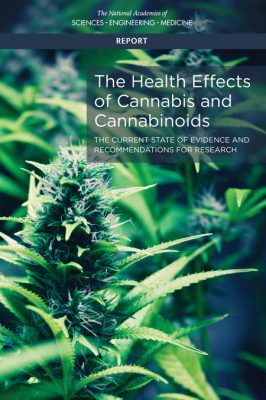Psychiatric Disorders Linked to More Physical Disease

In an article in the journal JAMA Network Open, Leah S. Richmond-Rakerd and colleagues found that people with mental disorders had more physical disease at younger ages, they had more and longer hospitalizations and associated health care costs, and they were more likely to die at younger ages than people without mental disorders.
The research came from a population-based cohort study of more than 2.3 million citizens of New Zealand over three decades. The authors concluded, “These findings suggest that ameliorating mental disorders may have implications for improving the length and quality of life and for reducing the health care costs associated with physical diseases.”
Editor’s Note: This editor would suggest the importance of also doing the opposite, that is, looking out for and treating and preventing the physical illnesses to which psychiatric patients are more vulnerable in order to improve the length and quality of life.
Either way, medical illnesses, both physical and psychiatric, are intimately intertwined, and both deserve careful and early intervention. Psychiatric and physical illnesses cause suffering, disability, and early demise. Major psychiatric illnesses need to be seen as potentially lethal medical illnesses, a fact that few people realize. Conversely, physical illnesses are often not treated as aggressively or intensively in psychiatric patients as in the general population. For example, patients with bipolar disorder get fewer interventions with stents and bypasses for the same heart problems as others. Special attention needs to be given to better encourage and support the medical health of psychiatric patients.
National Academy of Sciences, Engineering and Medicine Issues Report on the Health Effects of Cannabis
 In early 2017, the National Academy of Sciences, Engineering, and Medicine issued its first comprehensive report on cannabis since 1999. Shifting public opinion over the past few decades has led to 28 states and the District of Columbia legalizing medical uses of marijuana, and eight states and DC legalizing recreational marijuana use. The Health Effects of Cannabis and Cannabinoids: Current State of Evidence and Recommendations for Research is intended to address the lack of accepted standards to guide individuals in deciding whether and how to use cannabis safely. In addition to summarizing recent health-related findings on cannabis, the report also offers recommendations to guide future research.
In early 2017, the National Academy of Sciences, Engineering, and Medicine issued its first comprehensive report on cannabis since 1999. Shifting public opinion over the past few decades has led to 28 states and the District of Columbia legalizing medical uses of marijuana, and eight states and DC legalizing recreational marijuana use. The Health Effects of Cannabis and Cannabinoids: Current State of Evidence and Recommendations for Research is intended to address the lack of accepted standards to guide individuals in deciding whether and how to use cannabis safely. In addition to summarizing recent health-related findings on cannabis, the report also offers recommendations to guide future research.
The report shares findings about possible therapeutic benefits to cannabis use as well as health impacts relating to areas such as cancer, respiratory disease, immunity, pre- and post-natal health.
There were several notable findings with regard to mental health. The committee that issued the report found substantial evidence of a statistical association between cannabis use and the development of schizophrenia or other psychoses, with the highest risk among the most frequent users.
The committee also found moderate evidence of a link between cannabis use and increased symptoms of mania and hypomania in people with bipolar disorder who use cannabis regularly. The report also describes moderate evidence of an association between heavy cannabis use and increased suicidal ideation and suicide attempts.
There was also moderate evidence that regular cannabis use is linked to social anxiety disorder.
The report described factors that may lead to problem cannabis use. The committee found substantial evidence that being male, smoking cigarettes, and beginning cannabis use at an earlier age are risk factors for developing problem cannabis use. Read more

